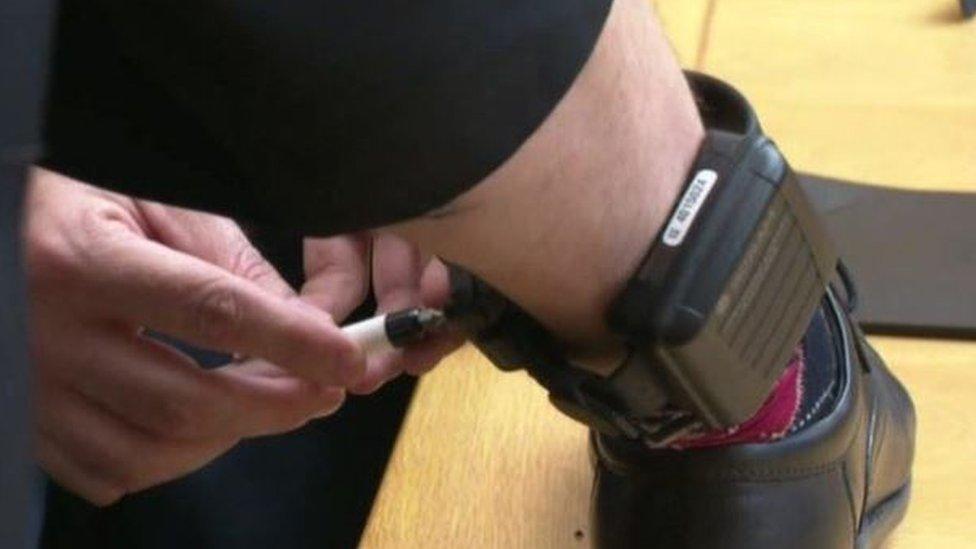'Sobriety tags' trialled by Lincolnshire, Humberside and North Yorkshire police forces
- Published

The tags detect alcohol in the wearer's sweat
Offenders who commit crimes while under the influence of alcohol could be issued with so-called sobriety tags as part of a two-year trial.
The scheme, which uses ankle bracelets to detect alcohol levels in sweat, is being funded by Lincolnshire Police and Crime Commissioner Marc Jones.
He said the measures would help protect victims and rehabilitate offenders.
The pilot is taking place in the Humberside, Lincolnshire and North Yorkshire policing areas.
More on this and other local stories from across Lincolnshire
'Change behaviour'
Nationally, more than half of all violent incidents are committed by people under the influence of alcohol, according to Mr Jones.
He said: "The pilot is really targeting those offences where violence and drink is a factor.
"Re-offending rates are much higher for people where alcohol plays a role in the offence, by tackling that we can reduce the likelihood of them re-offending."
He said the measures would be particularly effective in tackling domestic abuse.
Mr Jones said the Continuous Alcohol Monitoring tags, which can be worn for up to 120 days according to the manufacturers, should not be seen as a punishment, and were "about helping people change their behaviour".
A similar trial in London claimed 92% of those tagged complied with the order.
Under the scheme, offenders will be screened before being tagged. The tags will not be used on people who are alcohol-dependent or have certain medical conditions, Mr Jones added.
The Humberside, Lincolnshire & North Yorkshire Community Rehabilitation Company, which manages up to 11,000 offenders, is responsible for administering the scheme.
Condoms and chicken skin
Courts are able to require offenders to wear the tags as part of community or suspended sentences for violent and other crimes committed while under the influence of alcohol
If the tag detects the presence of alcohol in the system, probation services are alerted and the individual concerned could be sent back to court
The tags take an average of 48 alcohol content readings a day
A spokesman for Scram Systems, which makes the devices, said offenders have used condoms, chicken skin and luncheon meat in attempts to fool the device, which he said can detect if something is placed between the ankle and the unit
- Published25 February 2016

- Published31 July 2014
